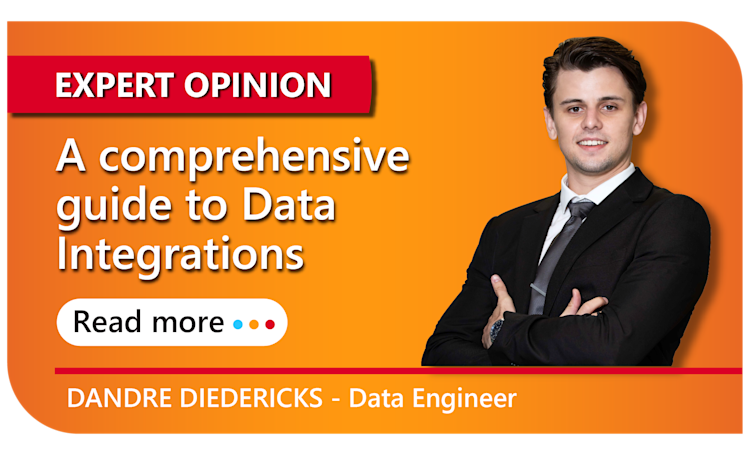In the age of digital transformation, data is more than just a byproduct of business operations—it's a strategic asset. Effective data integration within your warehouse is key to leveraging this asset, enabling you to uncover actionable insights and stay ahead in an increasingly competitive market. Here's an extended look at the importance of seamless data integration, the challenges involved, and expert recommendations for overcoming them.
The Importance of Seamless Data Integration
In today’s fast-paced, data-driven environment, businesses rely heavily on actionable insights derived from data to make informed decisions. Accurate and trustworthy business intelligence (BI) data ensures that decision-makers have a clear picture of the organisation’s performance and opportunities for growth.
When data integration is seamless, businesses can connect disparate systems, enabling teams to access a unified, comprehensive view of the enterprise. This fosters a collaborative environment where insights can be shared across departments, driving efficiency, innovation, and customer satisfaction.
Challenges of Integrating Diverse Data Sources
While the benefits of effective data integration are evident, the path to achieving it is fraught with challenges. Organisations often deal with data originating from multiple systems, each with unique structures, formats, and requirements.
For example, consider ACME, a company that relies on an ERP system, HR tools, advertising platforms, support services, and accounting systems. These systems produce siloed data that must be harmonized to create a unified data set. This complexity increases exponentially with the introduction of:
Evolving Business Rules: Frequent changes in policies or workflows can disrupt established data pipelines.
Dynamic Data Sources: The addition or removal of data sources requires constant updating of integration frameworks.
Shifting Requirements: Data models and integration strategies must adapt to changing analytics needs.
Security and Compliance: Maintaining data integrity and meeting regulatory standards like GDPR, HIPAA, or CCPA adds another layer of complexity.
The Cost of Poor Data Integration
When data integration is ineffective, the consequences can be severe. Fragmented systems result in inaccurate or incomplete data, leading to poor decision-making. Gartner reports that poor data quality costs organisations an average of $12.9 million annually. These costs manifest in several ways:
1. Operational Inefficiencies: Time and resources are wasted when teams manually reconcile conflicting data sets.
2. Missed Opportunities: Inaccurate insights can result in missed trends, hindering competitive advantage.
3. Reputational Damage: Data errors can erode customer trust and brand credibility.
Moreover, as businesses increasingly prioritise real-time analytics, the pressure to maintain clean, integrated data streams grows. The failure to meet these demands can stifle innovation and growth.
Modern ETL Tools: The Key to Seamless Integration
To address these challenges, organisations are turning to modern ETL (Extract, Transform, Load) tools. These tools offer powerful capabilities to manage and integrate data from multiple sources effectively.
Features and Benefits of Modern ETL Tools:
Scalability: They handle large volumes of data without compromising performance.
Flexibility: These tools can process both structured and unstructured data, accommodating diverse business needs.
Automation: Streamlining repetitive tasks reduces manual errors and saves time.
Compliance-Ready: Built-in features ensure adherence to evolving regulatory requirements.
Security: End-to-end encryption and access controls protect sensitive data.
Expert Recommendations for Effective Data Integration
1. Adopt a Centralised Data Strategy: A well-defined strategy ensures that data integration efforts align with overall business goals.
2. Leverage Data Lakes: Use data lakes to consolidate raw data before processing. This approach allows for flexibility in analytics.
3. Invest in Data Governance: Establish clear policies for data ownership, quality, and security to reduce risks and improve compliance.
4. Prioritise Real-Time Capabilities: Enable real-time data integration to support dynamic decision-making and respond to market changes quickly.
5. Utilise Artificial Intelligence (AI): AI-driven tools can detect anomalies, automate transformations, and optimise workflows.
6. Focus on Team Collaboration: Foster communication between IT teams, data analysts, and business stakeholders to ensure alignment.
The Role of Data Engineering Practices
Data engineering complements ETL tools by establishing robust frameworks for data processing and integration. It involves designing pipelines that efficiently handle data movement, applying transformations, and ensuring data quality. Together, ETL tools and data engineering practices enable businesses to transition from reactive data management to proactive analytics.
Transform Challenges into Opportunities
Seamless data integration is not just a technological challenge but a strategic opportunity. By overcoming integration hurdles, businesses unlock the full potential of their data, paving the way for innovation and sustained growth.
At Keyrus, we specialise in crafting tailored data integration solutions that align with your unique business needs. Our team of experts is committed to helping you transform data into a competitive advantage.
Take the first step toward optimising your data strategy - reach out to us today at sales@keyrus.co.za.
